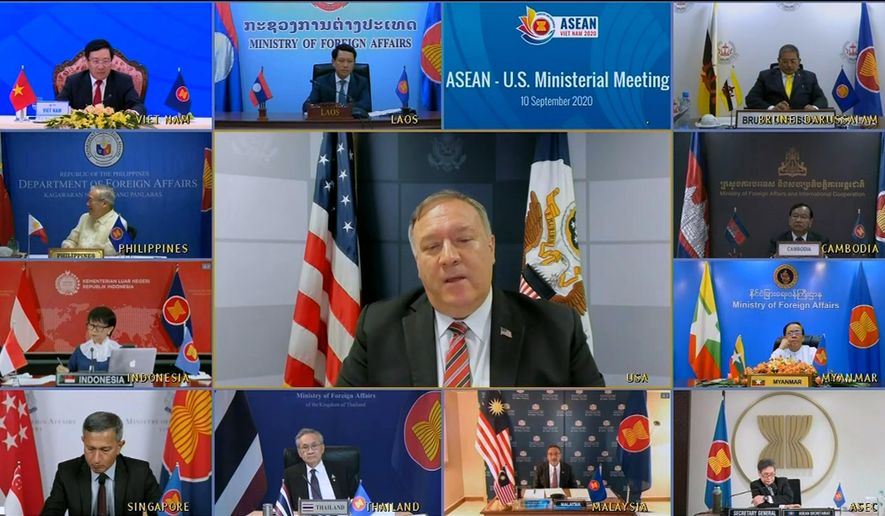Secretary of State Mike Pompeo criticized Chinese propaganda outlets after they refused to publish an opinion article by the U.S. ambassador to China.
Mr. Pompeo said in a statement Wednesday night that the official Communist Party newspaper People’s Daily turned down an article on U.S.-China reciprocity by Ambassador Terry Branstad. The op-ed called for closer ties through “unrestricted engagement and uncensored discussion.”
“The People’s Daily’s response once again exposes the Chinese Communist Party’s fear of free speech and serious intellectual debate — as well as Beijing’s hypocrisy when it complains about lack of fair and reciprocal treatment in other countries,” Mr. Pompeo said.
The secretary of state noted that Chinese government officials can speak directly and openly to the American people through the U.S. news media.
Chinese Ambassador to the United States Cui Tankai has published five articles this year, including in the Washington Post and Politico, and has appeared in interviews on CNN and CBS.
China’s Foreign Ministry and state-run propaganda organs like Global Times and China Daily also enjoy unrestricted access to social media like Twitter and Facebook that are used to attack U.S. policies — and Mr. Pompeo.
Chinese media in recent weeks have featured vicious political attacks on Mr. Pompeo, a leading Trump administration voice for new hard-line policies on China, speaking out on China’s human rights record and military encroachment in the South China Sea.
The Chinese are using the access to American media “to attack our policies, our way of life, and the very system that protects their ability to speak freely,” Mr. Pompeo said.
“If Communist China is sincere about becoming a mature power and strengthening relations with the free world, General Secretary Xi Jinping’s government would respect the right for Western diplomats to speak directly to the Chinese people, allow foreign journalists back into China, and stop the intimidation and harassment of investigative journalists, foreign and Chinese, who strive to uphold the integrity of the fifth estate to serve the public good,” he said.
The refusal “shows just how much China’s unelected party elites fear their own people’s free thinking and the free world’s judgment about their governance practices inside China.”
Mr. Branstad, in his unpublished article, faulted the Chinese for one-sided dealings in seeking constructive ties with the United States.
Chinese leaders “insisted we sweep differences under the table as a prerequisite for engagement,” he said.
“We will need to build a foundation for understanding and true reciprocity,” Mr. Branstad said. “It must start with the Chinese government being willing to address our concerns about the imbalance in the relationship and allowing our two peoples to build relationships through unrestricted engagement and uncensored discussion.”
The People’s Daily said in turning down Mr. Branstad’s article blamed the United States for what it said was escalating “political suppression and persecution against Chinese press institutions in the United States out of Cold War mentality and ideological prejudice.”
The newspaper noted the State Department policy of forcing Chinese state media to register as foreign missions and expelling Chinese “journalists.”
“Regrettably, the U.S. side, on the one hand, claims that the People’s Daily and other Chinese media are the [Communist Party’s] ’propaganda machines,’ and on the other hand, demands that the ’propaganda machines’ do ’propaganda’ for the United States, which is illogical, overbearing and unreasonable,” the newspaper said.
The paper said Mr. Branstad’s article was “full of loopholes and seriously inconsistent with facts.”
“It does not meet the consistent standard of the People’s Daily, a prestigious, serious and professional media, for selecting and publishing articles,” the paper said.
• Bill Gertz can be reached at bgertz@washingtontimes.com.




Please read our comment policy before commenting.